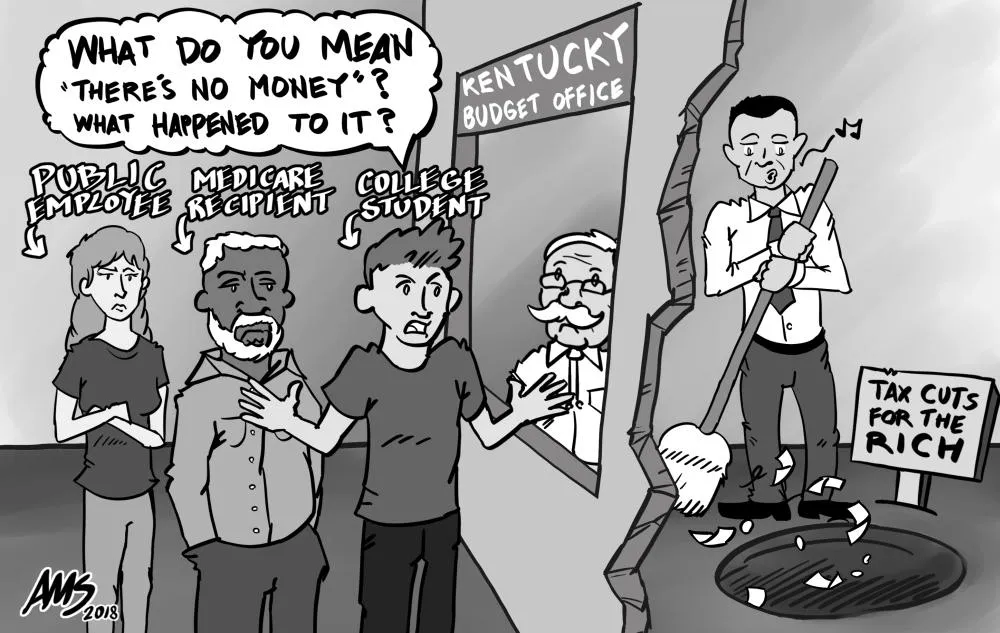“Frustrated by Biden, Black men ponder their options,” says the headline on a Washington Post story by Michael Brice-Saddler.
The story starts with the reporter writing about a Black man driving a truck into the heart of Pontiac, Michigan, “which has rapidly declined during years of economic turmoil, leaving streets once lined with vibrant homes and businesses now riddled with empty lots.” Brice-Saddler adds, “Without fail, he said, ... Democratic canvassers show up around election time vowing to improve conditions for him and his neighbors, but it never happens.”
Brice-Saddler wrote that the truck driver “voted for President Biden in 2020.” Yet this time, he “says he and others in his predominantly Black neighborhood aren’t so sure.” He’s “torn between voting and not voting at all. A lot of us are. I don’t think Biden is it, but I don’t see what else is out there. ... You can’t dangle carrots and assume we’ll vote for you just because we don’t like the other platform.’”
According to Brice-Saddler, “political analysts say” the truck driver’s views “illustrate a waning enthusiasm among Black voters, particularly Black men, toward Biden and the Democratic Party.” Polls look bad for Biden, too, he wrote.
The Jan. 27 Post story is similar to dozens of others with the same narrative. But that narrative may have taken a hit with Biden mustering strong Black support in the Feb. 3 South Carolina Democratic primary.
Palmetto State results suggest Black support for Biden is still strong.
Rep. James Clyburn (D-S.C.) disputes the notion that Black support for Biden is fading. “He got 96 percent of the vote in this primary but its largest percentage — over 97 percent — was in the town of Orangeburg where there are two HBCUs and a community college,” The Hill's Laura Sforza quoted Clyburn. “And he got the largest percentage of the whole state. So that demonstrates to me what I’ve been saying all the time and that Joe Biden has not lost any support among African Americans.”
Sforza noted that “Clyburn’s endorsement in the 2020 election helped deliver a win to Biden in the South Carolina primary and boosted the rest of his primary campaign.”
Bloomberg’s Stephanie Lai and Akayla Gardner wrote that Biden’s big win helped the president “undercut claims from critics that the Democratic base is unenthusiastic about the 81-year-old president’s campaign for a second term. Biden used the primary to court Black voters, a bloc whose support will be crucial in November, but whose frustrations with the administration on key issues such as voting rights, police reform, and student-debt relief imperil his reelection hopes. The president made South Carolina the first official primary for Democrats in a nod to his successful 2020 effort.”
Lai and Gardner also wrote that the Biden campaign “insisted in the runup to the primary that it was not taking Black voter support for granted, with Biden, Vice President Kamala Harris, first lady Jill Biden all traveling there last month. The Democratic National Committee launched an advertising blitz targeting Black, rural, and young voters, and the president’s operation deployed key surrogates, led by” Clyburn.
Bloomberg’s Gregory Korte similarly wrote that Biden’s blowout “gave Democrats some tentative signs of strength among the Black voters crucial to his reelection campaign.”
Blacks comprise about 50 percent of South Carolina's Democratic voters, “a demographic group that Biden called ‘the backbone of the Democratic Party,’” according to Korte, who added, “Among early voters — the only results for which a racial breakdown was available — 76% of those voting in the primary were Black, said Jay Parmley, executive director of the South Carolina Democratic Party. That’s 13% higher than 2020.”
Said Parmley, “I think the narrative nationally is ambivalence among Black voters. We have not seen that here. There is no evidence of it.”
Korte also quoted Clyburn’s remarks on CNN’s State of the Union program on the Sunday following the Saturday primary: “That demonstrates to me what I have been saying all the time, that Joe Biden has not lost any support among African Americans. Now, you can go out and talk to 10 people, publish the comments of one, and maybe give off a different thought. But he has not lost support among African Americans.”
Because the primary was virtually uncontested, the turnout was low. “But Black voters were overrepresented among those who showed up, and they were determined to do so against any challenges," wrote The Washington Post's Eugene Robinson.
“... Some national polls have shown anemic enthusiasm for Biden’s reelection within his own party, but voters here apparently did not get the memo. Black voters cast roughly three-fourths of the early vote, according to the state Democratic Party, though they make up only about half of the state’s Democratic electorate.”
Robinson recalled that in 2020, Clyburn’s endorsement propelled Biden to a blowout win in the primary “that seemed to signal to African American voters across the country that it was time to get aboard the Biden train. That is the president’s hope again this year.”
Concluded Robinson, “It’s worth paying attention to how people are casting a ballot when they’re given the chance — and provided with alternatives they supposedly want. In a low-turnout primary that no one was compelled to be enthusiastic about, Black voters were more enthusiastic than others and made their choice clear.”
Will the Black disillusionment narrative persist?
It is too early to tell if the South Carolina primary returns will cause a shift in the media narrative that Blacks are frustrated, even angry, at the Democrats. Black disaffection often focuses on the claim that Democrats do little or nothing in return for Black support, notably not passing important new civil rights legislation.
“No president can get through Congress what he wants unless he has a working majority,” said Murray State University historian Brian Clardy, who is Black, a Democrat, and a Biden supporter. “Biden has never had a working majority.”
In 2021, Biden’s first year in office, Democrats held a slight House majority while the Senate was split 50-50. (There were 47 Democrats and three independents who caucused with the Democrats. Vice President Kamala Harris’s constitutional role as a tie-breaker gave the Democrats a one-vote majority.)
In 2021, Senate Republicans blocked three key voting rights bills: the For the People Act, the Freedom to Vote Act and the John Lewis Voting Rights Advancement Act. “If Democrats hold a slim majority in the U.S. Senate, why does progress on crucial voting rights bills keep stalling?” asked Democracy Docket. “The answer lies in a procedural tool in the Senate to delay or block the vote on a piece of legislation – the filibuster.” It takes 60 votes to overcome a filibuster.
In the 2022 midterm elections, the Democrats netted a Senate seat but lost the House.
Biden’s inner circle: short on Black representation?
Though the president assembled the most diverse cabinet in history, some Black critics point to a 2022 “analysis of Biden’s senior aides from an independent think tank” that concluded “the president has not done enough to ensure there is sufficient Black representation in key White House jobs that are less visible to the public, but whose holders often have an outsize influence on policy.”
Clardy countered by arguing that Biden’s “vice president is Black, his secretary of defense is Black, his UN ambassador is Black. Susan Rice [his first domestic policy adviser is Black] and he named the first Black woman to the Supreme Court.”
Vote for Donald Trump or stay home?
November New York Times and Siena college polling showed that Trump had gained significant support — but far short of a majority — among Blacks in a half dozen crucial battleground states, according to a Times story by Maya King and Lisa Lerer.
But they wrote that Cornell Belcher, an Obama pollster, “doubted that many Black voters would switch their support to Mr. Trump. His bigger fear, he said, is that they might not vote at all.”
Said Belcher, “I’m not worried about Trump doubling his support with Black and brown voters. What I am worried about is turnout.”
The South Carolina primary may have allayed at least some of his concerns.
In any event, Clardy agrees with Belcher. “A Black man voting for Trump would be like [liberal Jewish comedian, actor and social satirist] Mort Sahl voting for [American Nazi Party founder] George Lincoln Rockwell,” he said.
He doubts many Blacks will, in the end, “vote for a candidate for president that cribs lines from Adolf Hitler, referred to African countries as shitholes, and said there were fine people on both sides at Charlottesville.”
The war in Gaza
"One worry for Democrats is that young progressives opposed to Biden’s position on the Israel-Hamas war in Gaza, including many young Black people, will refuse to vote for him on principle,” recently wrote New York Times columnist Charles Blow.
He added that “even if some voters find that Biden has not pushed back enough against Israel’s right-wing prime minister, Benjamin Netanyahu, in his prosecution of the war, they should consider that pushback would very likely be nonexistent under Trump. In that way, declining to vote for Biden as a way of expressing support for Palestinians — or at least holding out for a cease-fire — could wind up further hurting the Palestinian cause. The moral position, abstention, could become in effect an immoral act, throwing open the gate and allowing even more danger in.”
Warned Blow: “It may be hard to fathom, but the prospects for the Palestinian people could get worse.”
Clardy, too, is more anxious about non-voters than about Blacks who might cast a Trump ballot. He said that withholding a vote Biden otherwise would have received is, in effect, giving a vote to Trump. “When you decide to stay home, you are sending a message that you don’t care. But somebody wearing that famous red baseball cap does care. If you’re Black and think you're getting screwed now, just wait until a second Trump term.”
Waters: The GOP is pushing the claim that Black support for Biden is waning.
Appearing on MSNBC's The Sunday Show with Jonathan Capehart on Jan. 28, Rep. Maxine Waters (D-Calif), another Biden ally, said she was skeptical of polls that show the president suffering significant slippage among Black voters. “Trump and the Republicans have been doing everything that they can to get the people of this country to believe [Biden is] … losing the Black vote,” she said. “I don't buy it yet.”
Waters conceded that her party has “some work to do to make sure that Blacks are being told that [the Republicans] … are attempting to use us. They are attempting to divide us” to help Trump win.
--30--







